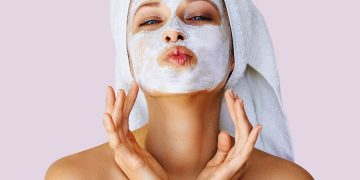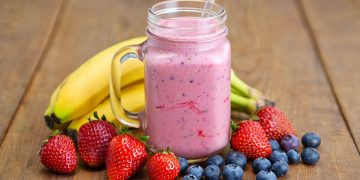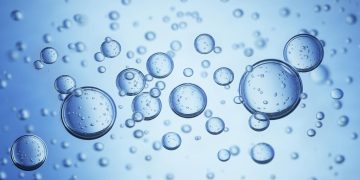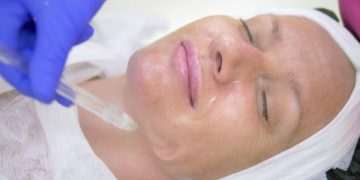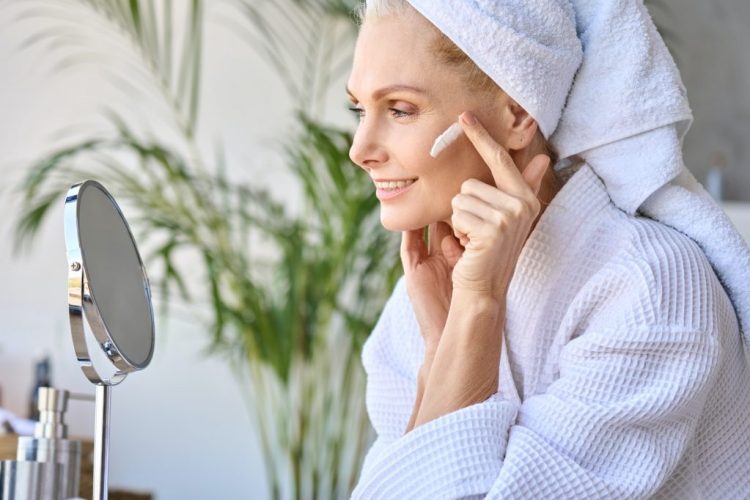Introduction
When we talk about skin care, hydration often takes center stage. We all know that drinking water is crucial for our overall health, but can it really make a difference in the appearance and health of our skin? The answer is a resounding yes! Hydration plays a key role in maintaining a youthful, radiant complexion. But how much water is enough? And is drinking water the only way to hydrate your skin? Let’s explore the science behind hydration and its impact on skin health.
The Science of Skin Hydration
Our skin, like the rest of our body, is made up of cells that need water to function properly. Skin cells rely on water to maintain their structure and function. When your skin is properly hydrated, it looks plump, smooth, and glowing. On the other hand, dehydration can lead to dryness, dullness, and even wrinkles.
The outermost layer of the skin, known as the stratum corneum, acts as a barrier that protects the body from environmental damage and moisture loss. Water helps maintain this barrier, preventing it from becoming cracked or damaged. Without sufficient hydration, the skin can’t perform its protective functions effectively, leaving it vulnerable to irritants, pollutants, and harsh weather conditions.
How Much Water Do You Really Need?
The commonly recommended amount of water is eight 8-ounce glasses a day, known as the “8×8 rule,” but the reality is that everyone’s needs vary depending on factors such as age, activity level, and climate. Some people may need more, while others need less. A more personalized approach is to listen to your body and drink when you’re thirsty.
Factors That Affect Hydration Needs:
- Age: As you get older, your skin’s ability to retain moisture decreases, meaning you may need more hydration.
- Activity Level: Exercise increases fluid loss through sweat, so hydration needs are higher.
- Weather: Hot, dry climates can dehydrate your skin more quickly, requiring extra hydration.
- Health Conditions: Certain medical conditions like diabetes or skin disorders like eczema can also affect how much water you need.
Other Ways to Hydrate Your Skin
While drinking water is important, it’s not the only way to keep your skin hydrated. There are several methods that can complement internal hydration:

1. Moisturizing Topically
Moisturizers act as a barrier, preventing water loss from your skin. They contain ingredients like hyaluronic acid, glycerin, and ceramides that draw moisture into the skin and lock it in. Look for a moisturizer suitable for your skin type (oily, dry, or combination) for the best results.
2. Humidifiers
Using a humidifier in your home, especially during the winter months, can add moisture to the air and prevent your skin from becoming too dry. This is especially helpful for people with sensitive or dry skin.
3. Hydrating Foods
Certain foods can boost your hydration levels from the inside out. Foods with high water content, such as cucumbers, watermelon, and oranges, not only help hydrate but also provide vitamins and antioxidants that promote healthy skin.
4. Avoiding Skin-Drying Habits
Certain lifestyle choices can actually dry out your skin, making hydration efforts less effective. Hot showers, harsh soaps, and over-exfoliating can strip the skin of its natural oils. Stick to lukewarm water when showering, use gentle, hydrating cleansers, and exfoliate only once a week.
Signs of Dehydrated Skin
Sometimes, it’s difficult to recognize when your skin is dehydrated, especially since it can happen gradually. But there are telltale signs that can help you identify dehydration early:
1. Dryness & Flakiness
If your skin feels tight, rough, or flaky, it could be a sign that it’s lacking moisture. Dehydrated skin can’t hold onto moisture, so it feels dry and uncomfortable.
2. Dullness
Hydrated skin reflects light more effectively, giving you that healthy, radiant glow. When your skin is dehydrated, it may appear dull or lackluster, with a rough texture.
3. Fine Lines and Wrinkles
Fine lines become more noticeable when the skin is dehydrated. Dehydration causes the skin to lose its plumpness, making wrinkles more prominent.
4. Increased Sensitivity
Dehydrated skin is more prone to irritation, redness, and itching. This is because a lack of moisture weakens the skin’s natural protective barrier.
5. Breakouts
Surprisingly, dehydration can lead to breakouts. When skin is dry, it compensates by producing more oil, which can clog pores and lead to acne.
Hydration for Different Skin Types
While hydration is essential for all skin types, how you go about it will differ depending on whether you have oily, dry, combination, or sensitive skin. Here’s a quick guide:
1. Oily Skin
Even though your skin might be shiny, it still needs hydration. Look for oil-free, non-comedogenic moisturizers that provide hydration without clogging your pores. Consider gel-based moisturizers or serums containing hyaluronic acid.
2. Dry Skin
Dry skin often requires richer, more emollient products. Look for moisturizers with ingredients like shea butter, ceramides, or fatty acids that help seal moisture into the skin.
3. Combination Skin
If you have combination skin, focus on hydrating the drier areas of your face while using a lighter moisturizer on the oilier areas. A balanced approach will keep your skin healthy and hydrated.
4. Sensitive Skin
Sensitive skin requires gentle hydration. Opt for fragrance-free, hypoallergenic products to avoid irritation. Aloe vera and chamomile-based moisturizers can also be soothing for sensitive skin.
Best Hydrating Ingredients to Look For
When shopping for skincare products, certain ingredients are known for their excellent hydrating properties. Here’s a rundown of some of the best:

1. Hyaluronic Acid
Hyaluronic acid is a humectant, meaning it draws moisture from the air into your skin. It can hold up to 1,000 times its weight in water, making it an incredibly effective hydrator.
2. Glycerin
Glycerin is another powerful humectant that pulls moisture into the skin. It’s often used in moisturizers and serums because it helps the skin retain hydration throughout the day.
3. Ceramides
Ceramides are lipids that help form the skin’s protective barrier. They lock in moisture and keep the skin hydrated, making them a key ingredient in many moisturizing products.
4. Aloe Vera
Aloe vera is known for its soothing and hydrating properties. It helps cool the skin and provide moisture without feeling heavy or greasy.
5. Squalane
Squalane is an oil that mimics the skin’s natural oils. It’s lightweight, non-greasy, and deeply hydrating, making it perfect for all skin types.
Hydration and Skin Aging
As we age, our skin’s ability to retain moisture declines. This is why proper hydration is even more important as we get older. Dehydrated skin can accentuate the appearance of fine lines and wrinkles, giving your complexion a tired, aged look.
Hydrated skin, on the other hand, looks smoother, plumper, and more youthful. By maintaining good hydration habits, you can help preserve your skin’s elasticity and reduce the visible signs of aging.
Conclusion: Hydration Is Key for Healthy Skin
In summary, hydration is fundamental to achieving and maintaining healthy, glowing skin. It’s not just about drinking water, but also about incorporating hydrating skincare products and lifestyle habits into your routine. Whether you have oily, dry, or combination skin, there are ways to keep your skin hydrated and radiant. Remember to drink plenty of water, moisturize regularly, and protect your skin from environmental stressors. By prioritizing hydration, you can enjoy healthier, more youthful skin for years to come.

